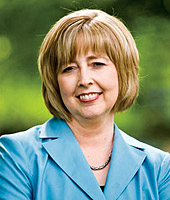The Love That Overpowers Hate
 The headline in The Wall Street Journal read “War and Forgiveness.” It wasn’t Jacob DeShazer’s participation in one of the most famous bombing raids of World War II, or the fact that he survived starvation, solitary confinement, and torture in a Japanese prison camp, that caught the nation’s attention when he died last spring at the age of 95. Rather, it was the seemingly inexplicable love he held for his captors — a love that led this former “Doolittle Raider,” after earning a degree from Seattle Pacific College, to journey to Japan and spend the next 30 years as a Christian missionary. The headline in The Wall Street Journal read “War and Forgiveness.” It wasn’t Jacob DeShazer’s participation in one of the most famous bombing raids of World War II, or the fact that he survived starvation, solitary confinement, and torture in a Japanese prison camp, that caught the nation’s attention when he died last spring at the age of 95. Rather, it was the seemingly inexplicable love he held for his captors — a love that led this former “Doolittle Raider,” after earning a degree from Seattle Pacific College, to journey to Japan and spend the next 30 years as a Christian missionary.
As we’ve explored the subject of reconciliation — one of SPU’s five signature commitments — for this issue of Response, DeShazer has been on my mind. Just why is his story so compelling? What draws all kinds of people, including the nation’s most powerful newspaper editors, to the biography of this humble man?
Could it be because his entire life was an act of reconciliation? Because he actually lived out Jesus’ command to “love your enemies”?
Jake DeShazer seemed to have experienced something remarkable: a complete transformation of mind and heart. In a tract he wrote for the Japanese people, he described it this way: “At last, in the month of May 1944, a guard brought me the [Bible], but told me I could have it only for three weeks. I eagerly began to read its pages. I discovered that God had given me new spiritual eyes and that when I looked at the enemy officers and guards who had starved and beaten my companions and me so cruelly, I found my bitter hatred for them changed to loving pity.”
Hate changed to love. When I read his words, I can’t help but think of another man, one whose life has been very different from DeShazer’s, except in a most essential way: This man, too, experienced a spiritual transformation that enabled him to love those whom by all rights he should hate. His name is John Perkins.
While DeShazer was living in Japan, bringing some of his most bitter enemies to faith in Christ, Perkins was serving the poor and disenfranchised within the African-American community in Mendenhall, Mississippi. After being beaten to the point of death by white policemen because he dared to challenge the status quo, Perkins too experienced “love overpowering hate.” In his autobiography, Let Justice Roll Down (our annual featured book), he wrote, “[God] washed my hatred away and replaced it with a love for the white man in rural Mississippi.” Since then, he has devoted his life to promoting justice and Christian reconciliation.
“Reconciliation” is a popular word today, and as such it is not easy to define, much less put into action. As the Response staff, SPU faculty, and guest writers — such as international peacemaker Douglas Johnston, Bishop Joab Lohara, author and pastor Eugene Peterson, author Thomas Howard, lecturer and leadership consultant Barbara Williams-Skinner, and Metropolitan Kallistos of Diokleia — have written about reconciliation in the home, the community, the world, and the church, we have attempted to focus on a distinctly Christian understanding of the concept.
Seattle Pacific is blessed beyond measure when it comes to models of this kind of reconciliation — from its past graduates, such as
Jake DeShazer, to its current partners, such as John Perkins. SPU is also blessed with students and faculty who are intentionally making biblical reconciliation part of the fabric of their learning and their lives today.
In the lives of DeShazer and Perkins — and those who follow in their footsteps — it’s possible to see the kind of reconciliation that truly could “change the world.” I pray that each of us experiences the transforming power of God’s love, the love that overpowers hate.

JENNIFER JOHNSON GILNETT
|